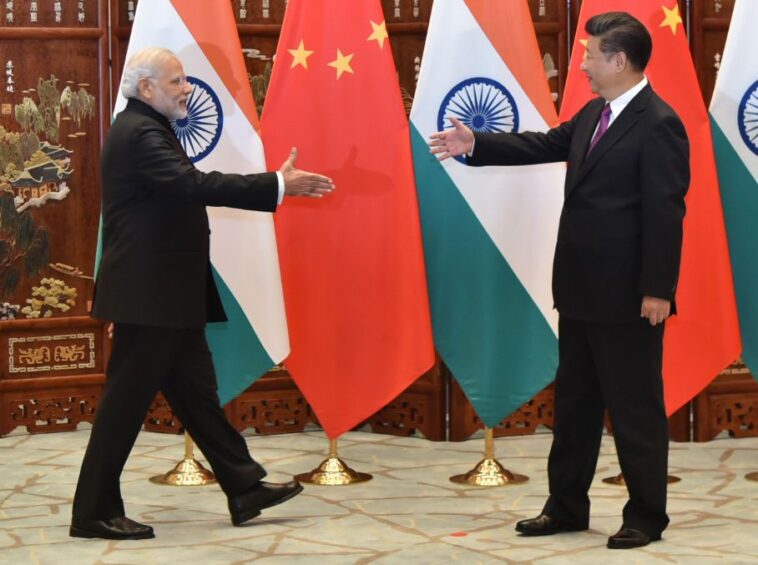The government announced on Thursday for the first time that Narendra Modi, the prime minister, and Chinese President Xi Jinping had discussed the “need to stabilise bilateral relations” eight months after their first face-to-face encounter in the limelight since the start of the standoff along the Line of Actual Control in May 2020.
Indian officials stated that the “Prime Minister and President Xi Jinping, who were both attending the G20 dinner hosted by the Indonesian President, exchanged courtesies at the conclusion of the dinner” in November of last year, despite the fact that there was no substantive readout on their conversation, which was recorded by cameras at the Summit dinner.
But last week, the Chinese Foreign Ministry cited the “important consensus” reached between Xi and Modi at the Bali Summit after National Security Advisor Ajit Doval met with top Chinese diplomat Wang Yi in South Africa on the sidelines of a gathering of BRICS NSAs.
President Xi Jinping and Prime Minister Modi made a significant agreement on stabilising China-India ties in Bali at the end of last year, according to a statement from the Chinese Foreign Ministry.
In response to inquiries on Thursday, the spokesperson for the Ministry of External Affairs, Arindam Bagchi, stated that the Prime Minister (Modi) and President Xi Jinping “exchanged courtesies at the conclusion of that dinner hosted by the Indonesian President and also spoke of the need to stabilise our bilateral relations. As you are aware, we have consistently argued that the western sector of the India-China border’s LAC problem must be resolved in order to end the conflict and bring peace and tranquilly back to the border regions.
After more than three years of the military standoff along the LAC in eastern Ladakh, where 50,000–60,000 troops are stationed, this is the regular template answer.
Modi and Xi’s handshake in Bali happened near the end of the dinner. The two leaders exchanged greetings as Xi passed past. After shaking hands and having a quick, informal talk, the camera panned elsewhere, and the feed was cut off.
Ministers and representatives from both sides have already met multiple times, but there has still been no sign of an end to the deadlock.
Doval also informed Wang Yi earlier this week that the LAC situation since 2020 had “eroded strategic trust and the public and political basis of the relationship” in one of his most acerbic remarks on the border standoff in three years.
On the sidelines of the G20 Foreign Ministers conference in New Delhi in March of this year, External Affairs Minister S Jaishankar visited the newly appointed Chinese Foreign Minister Qin Gang (he was fired this week and Wangi Yi took over). When they talked about the deadlock, Jaishankar referred to the existing status of the bilateral relationship as “abnormal”.





